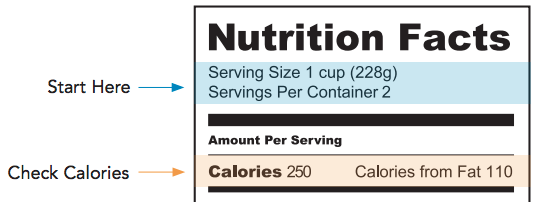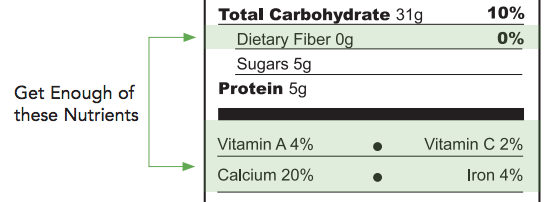Reading Nutrition Labels
The Nutrition Facts Label is a gold mine of useful info. It gives you what you need to shop smart and eat right.
Serving size
Serving size is the amount of this food that this label is talking about.
Sometimes a serving size is smaller than any adult would eat. This trick makes a food look low-calorie, low-fat, or low-carb when it's not!
Servings per container
Look out for this number. It can be tricky. If this package below is going to be your whole snack or meal, you'll get 2 servings. So, you'll want to multiply each nutrient value, and the calories, by 2.

Amount of calories
Keep in mind your daily calorie target. How much do you need in a day? How much of your total does this one food account for?
Notice the "Calories from Fat" in different foods. What portion of calories are from fat? See below for more on fat.
Percent daily values (DV)
The DV tells you how each nutrient fits into your total daily need. Use the DV to choose foods that are high in the good stuff and low in what you should limit.
What's good for you
Aim to get plenty of fiber, vitamins A and C, calcium, and iron.

What's not so good for you
Your body needs some sodium and fat. But not too much.
Eating too much sodium, cholesterol, or total fat raises your health risks.
As for fats, make an extra effort to limit saturated fat and trans fat in your diet.

Note: 5% DV or less is low. 20% DV or more is high.
Goal of the day
Spend a few minutes reading what's in your food.
For each of your top 3 snacks, how much is in 1 serving? What's your normal serving size? Is it too much?